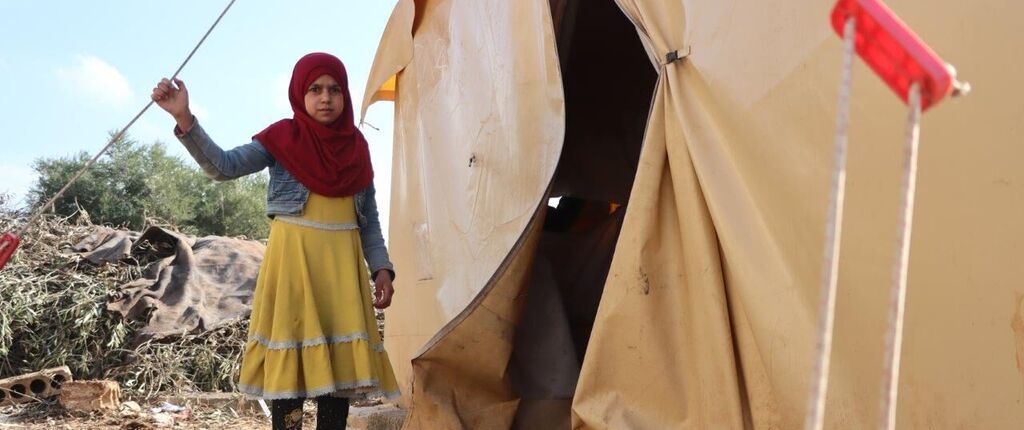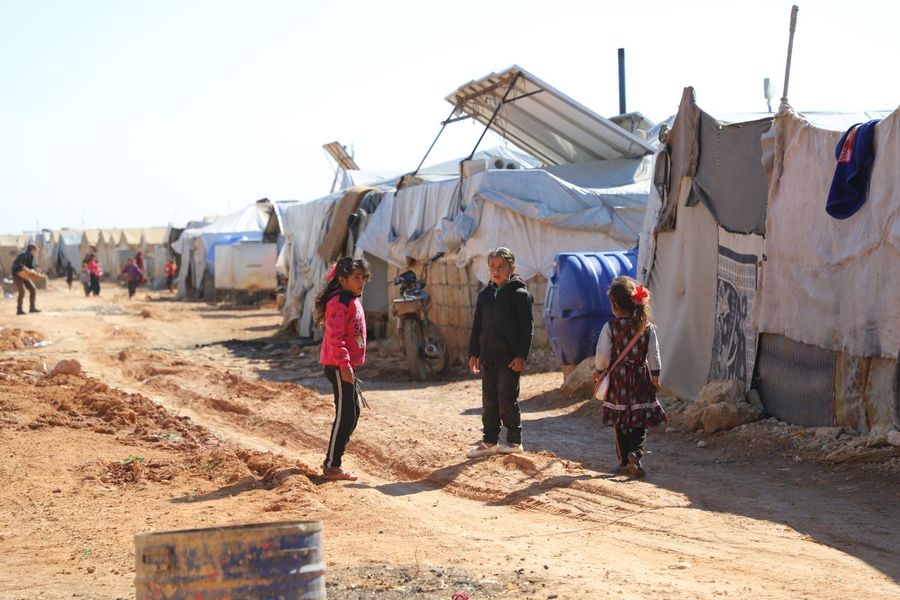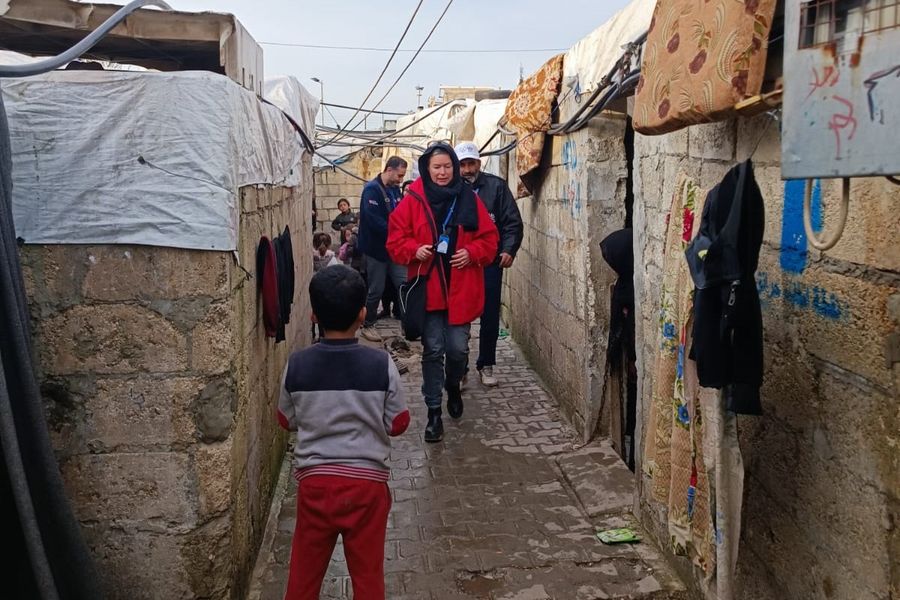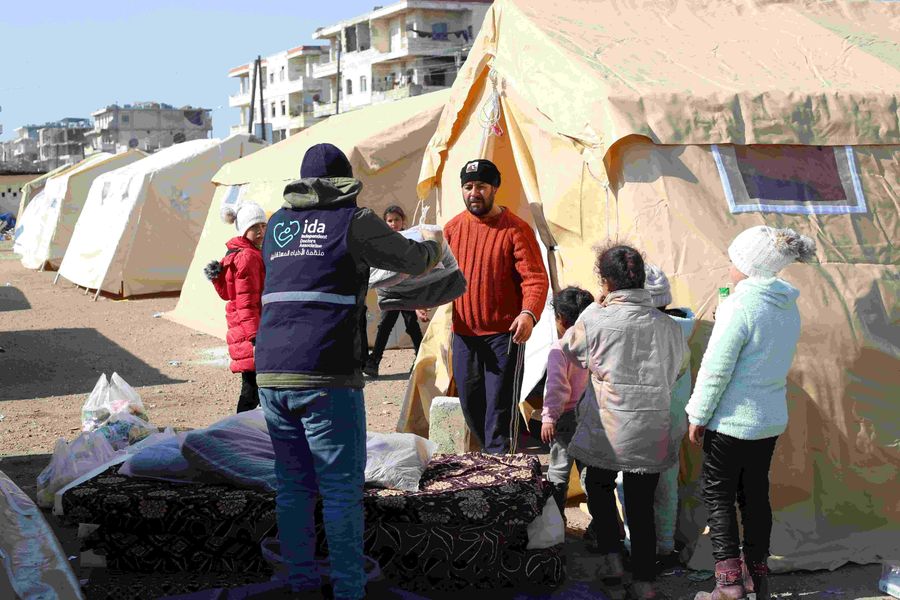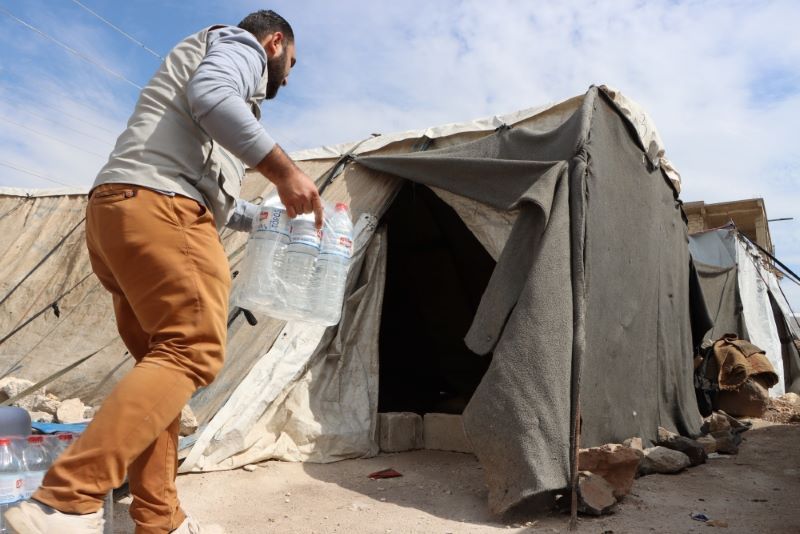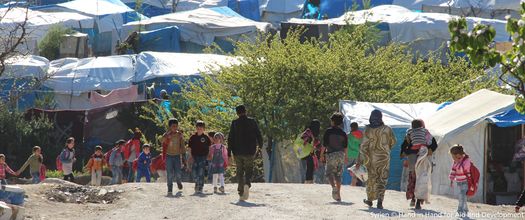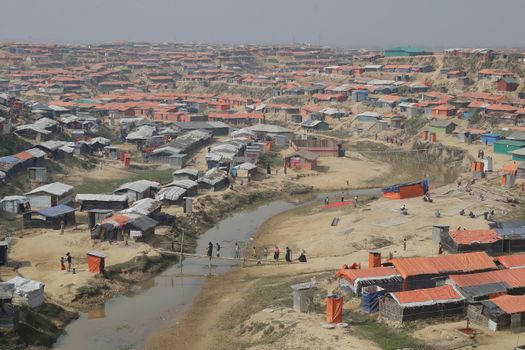Malteser International supports internally displaced people worldwide and provides comprehensive humanitarian aid. Our support varies depending on the context and emergency situation. It covers various areas in order to meet the most urgent needs of refugees and improve their living conditions in the long term:
- Providing relief supplies
Malteser International offers essential emergency aid to internally displaced persons (IDPs) who have been forced to leave their homes. Depending on the situation, this aid includes blankets, mattresses, kitchen sets, and heaters. Assistance is especially crucial during cold spells, when people are most vulnerable in their temporary shelters.
To help refugees on the ground, we set up health centers, offer medical training, organize the cleaning of sanitary facilities in the camps and distribute hygiene kits to families. Our emergency medical aid often focuses on setting up medical structures such as field hospitals, as in the case of North-West Syria or the Gaza Strip. Healthcare is provided in these makeshift hospitals by local specialists recruited by Malteser International. In addition to providing initial medical care in crisis areas, Malteser International places particular emphasis on long-term and emergency care for internally displaced persons and the host community. Special attention is also paid to mother-child health, the care of the wounded and chronically ill, as well as the prevention and treatment of infectious diseases.
We provide access to clean drinking water and other WASH services to displaced people seeking shelter in camps. In addition, Malteser International distributes food as an emergency response, such as in Gaza, and also runs longer-term food security programs, such as training and the provision of agricultural resources like seeds and tools. Our focus is also on special nutritional measures for malnourished and undernourished infants and pregnant women.
The experiences of violence, flight and loss leave deep psychological scars on displaced people. Malteser International offers psychosocial support to those affected, as is currently the case in Syria and Nigeria. This includes, for example, measures for survivors of sexual violence and psychological first aid courses. In western Ukraine, play mobiles also provide playful and age-appropriate psychosocial support in the form of sports, handicrafts and games.
In order to continue and expand our work for internally displaced people, we need your help. With your donation, we can support the people on the ground in the long term and provide them with the necessary relief supplies. Help us now with your donation. Every contribution counts and can make a lasting difference to the lives of displaced people.

